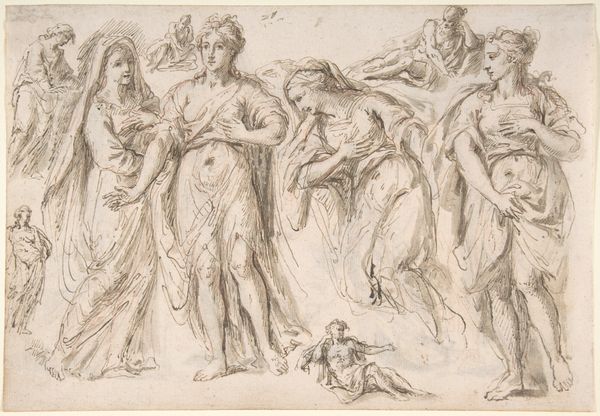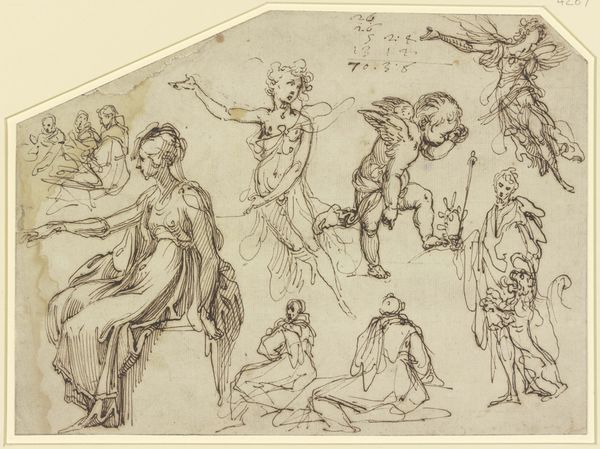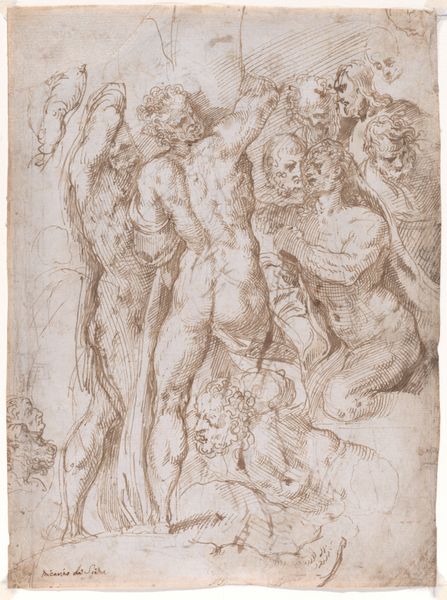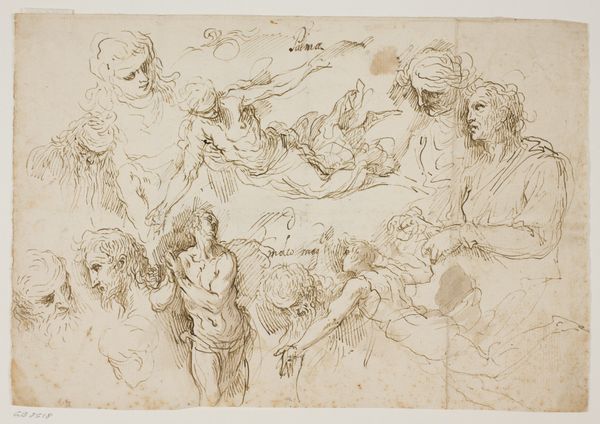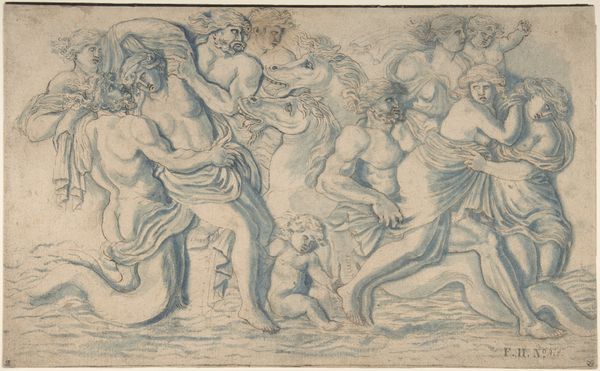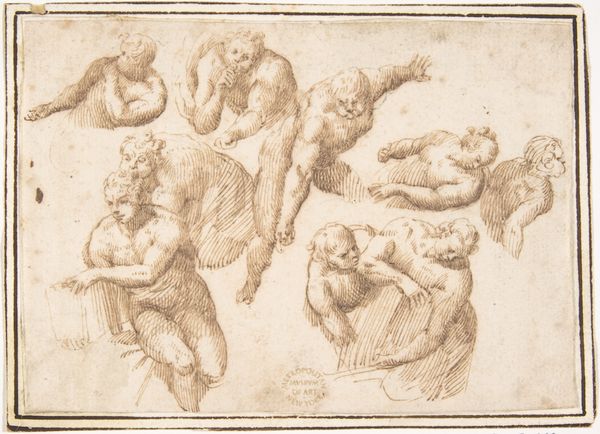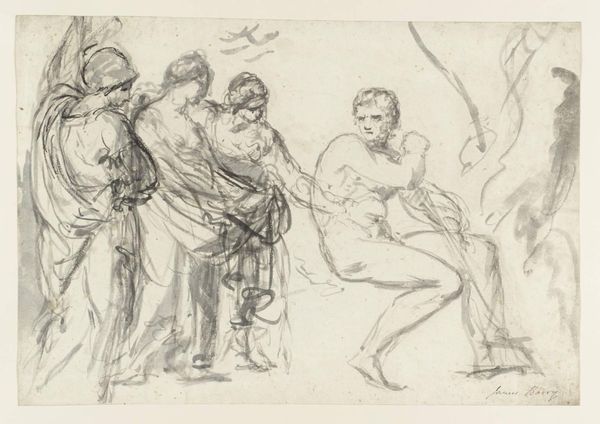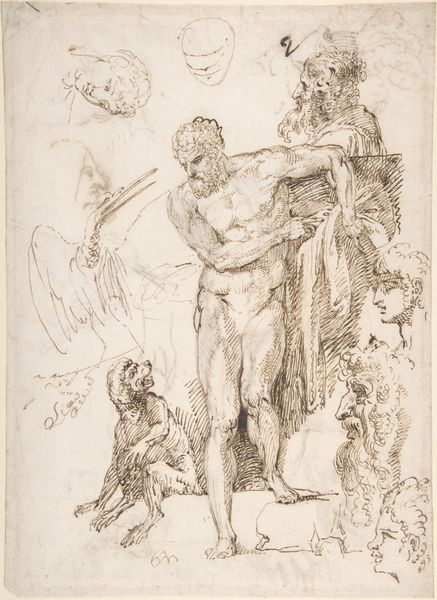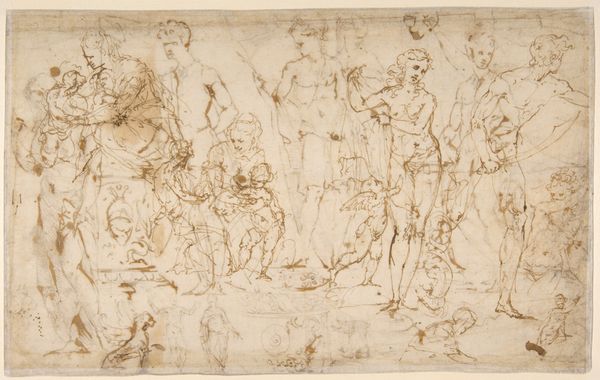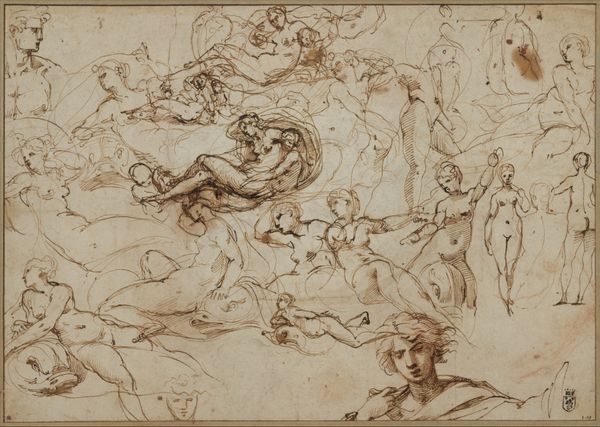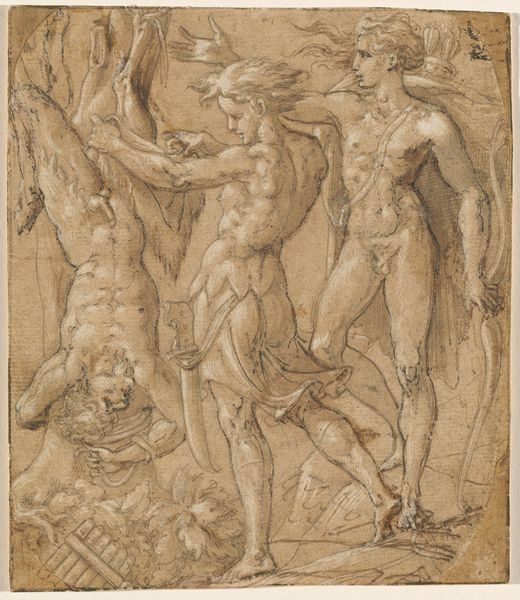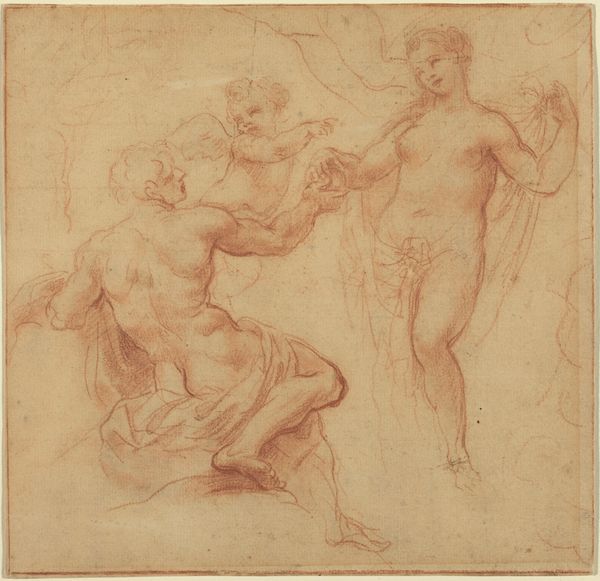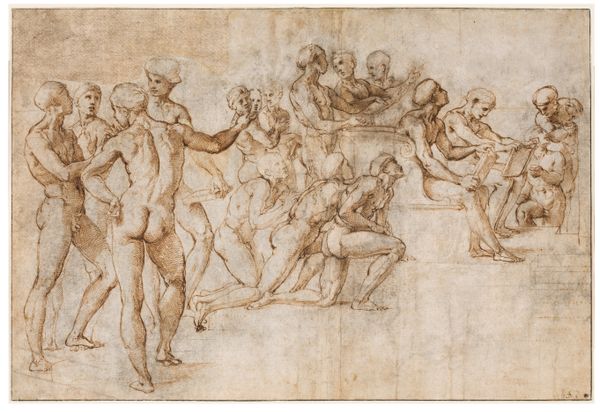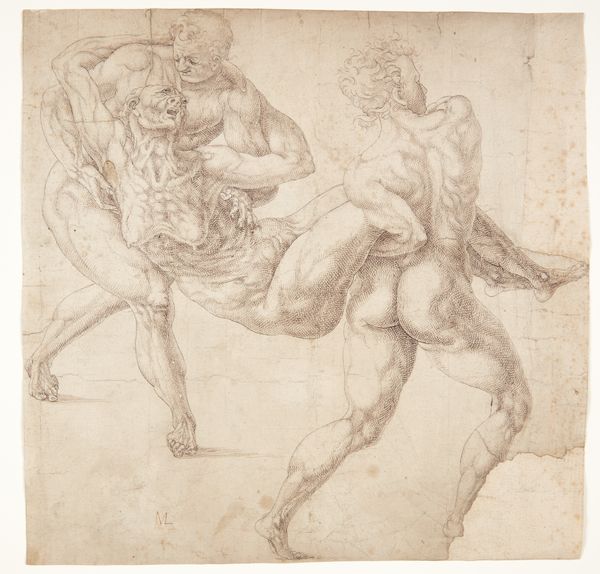
Recto: figure and head-studies (including Bacchus); Verso: four main figure studies repeated from the recto 1745 - 1815
0:00
0:00
drawing, ink
#
portrait
#
drawing
#
11_renaissance
#
ink
#
academic-art
#
nude
#
male-nude
Dimensions: 7 15/16 x 11 5/8 in. (20.2 x 29.5 cm)
Copyright: Public Domain
Bartholomaeus Ignaz Weiss made this study sheet of figures and heads in ink wash sometime in the 18th century. It’s a useful reminder of the institutional context in which art was made. Weiss was the director of the Imperial Academy of Drawing Teachers in Vienna. This sheet gives us insight into the artistic training of the time. Here, the artist sketches different poses and facial expressions. Some of the figures, like the one holding grapes and a chalice, seem to reference the classical world, perhaps Bacchus, the god of wine. Academies played a crucial role in shaping artistic taste and enforcing a hierarchy of genres, with history painting at the top. Drawings like this were not intended for public display, but as exercises in mastering the human form. These studies helped artists learn to represent the body in a way that was both idealized and naturalistic, reinforcing the social and cultural values of the time. By studying surviving drawings and archival records, art historians can reconstruct the day-to-day practices of art education and the social networks that sustained artistic production.
Comments
No comments
Be the first to comment and join the conversation on the ultimate creative platform.
